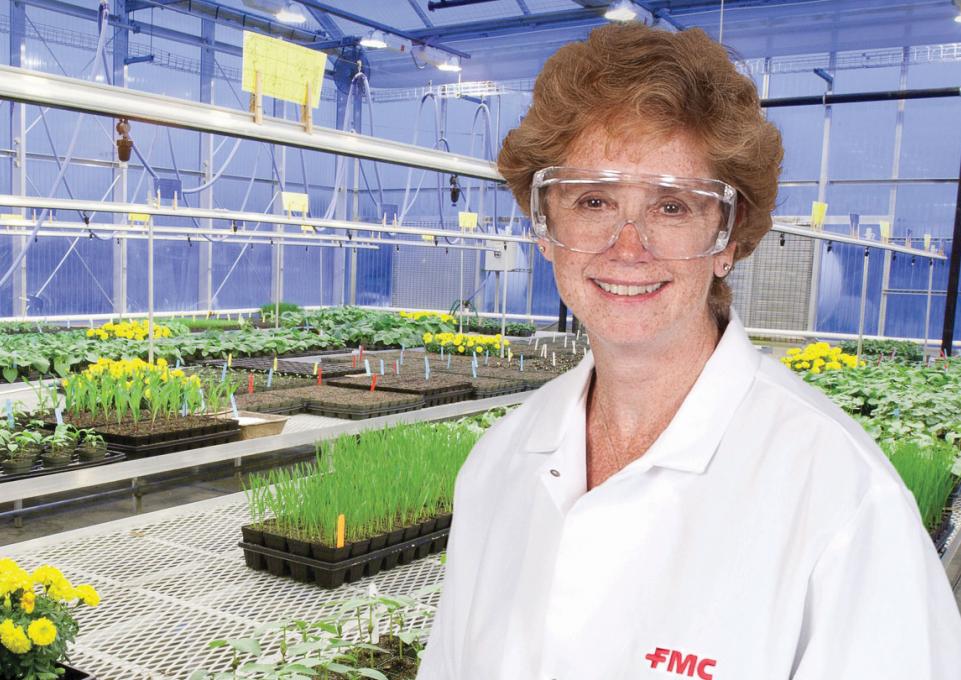
Linda Froelich’s job is a piece of cake—all she has to do is come up with ways to ensure the survival of mankind. No biggie.
Consider this: by the year 2050, just a few decades around the corner, the world’s population is predicted to top 9 billion people. That’s 2 billion more than today’s population. To adequately satisfy food demand for all those people, scientists estimate that we’ll have to double our current level of crop production. And we’ll have to do it in the face of climate change that is linked to ongoing and historic droughts, water scarcity, and a shortage of arable land.
Froelich, ’83, considers the gravity of this situation every day in her role as global sustainability director at FMC Corporation, one of the world’s leading agricultural products companies. And she’s up to the challenge.
“There are definitely some challenges ahead,” said Froelich, who earned her master’s degree in biology from Buffalo State, “but there are a lot of very talented people across the agricultural industry around the world who are working hard to address these issues—all within a framework of sustainability.”
Sustainability, of course, is a buzzword these days. But Froelich’s reference to maintaining a diverse and productive ecosystem goes beyond the buzz. Four years ago, she was invited to help design FMC’s corporate sustainability program. The task involved identifying five sustainability principles that would guide the company’s work, pinpointing current and future global challenges, and detailing safe and responsible solutions to those challenges. The sustainability group’s work, published in a 2013 report titled Shaping Solutions for the Future, has become central to the company’s operating philosophy.
“I’m proud of what our company came up with—it’s a plan that puts the safety of consumers, our employees, and, really, our planet, at the forefront of everything we do,” said Froelich, whose dedicated, hands-on approach has been evident since she began working at FMC as a greenhouse and field plot technician in the 1980s.
Froelich became such a champion of stewardship and sustainability ideas that the company created a new role for her—global product stewardship manager in the Agricultural Products Division—and then promoted her a year ago to the position of global sustainability director so that she could oversee the company’s sustainability efforts in its Health and Nutrition and Minerals divisions as well.
“Ultimately, innovation will drive our progress,” Froelich said. “On the food production side, we have a global research and development innovation group that is enhancing existing products and creating new products that will, for example, improve yields in drier climates. Those kinds of innovations will play a big role in feeding the growing population.”
She also knows that long-term solutions to food issues, including food safety, will require original thinking by future generations. That’s why she is a major advocate for STEM (science, technology, engineering, and math) education and is the driving force behind FMC’s Career days at the Academy of Natural Sciences of Drexel University, in Philadelphia. The annual event introduces more than 1,200 local middle school students to working scientists and allows the students to engage in hands-on activities—all with the goal of encouraging them to pursue education and careers in science.
“The next generation has so much energy and knowledge, and they’re very committed to the principles of sustainability. I have three millennials working in my office who demonstrate that to me every day,” Froelich said. “And by reaching out to younger school-age kids, we want to plant the seed that opportunities exist to do great things.”
